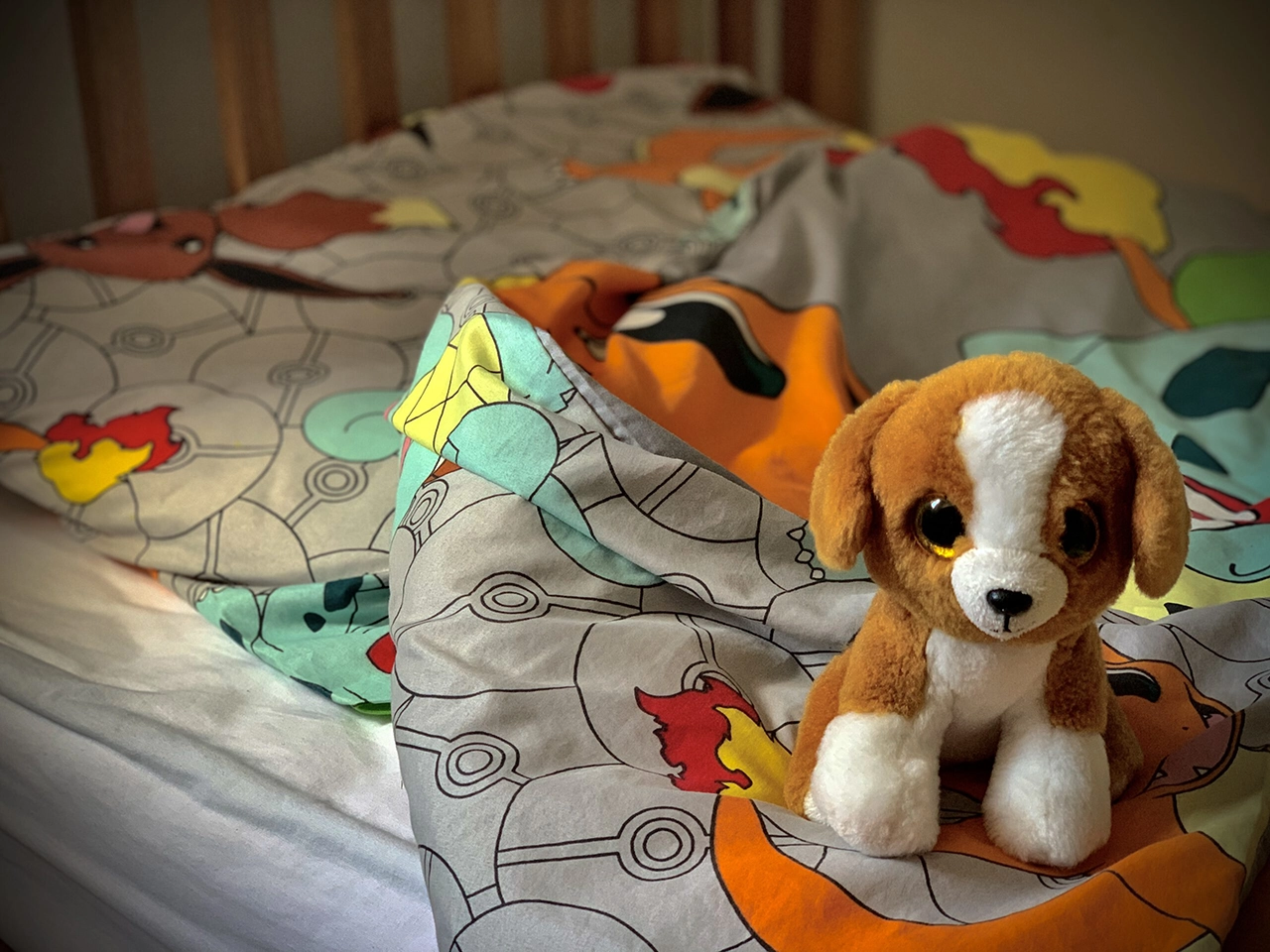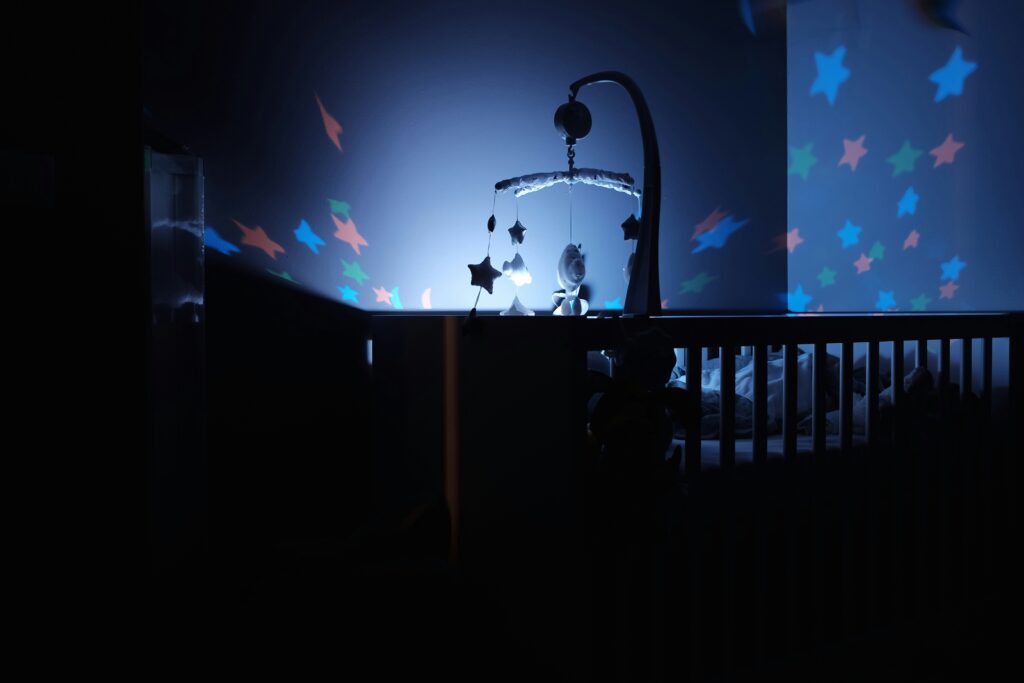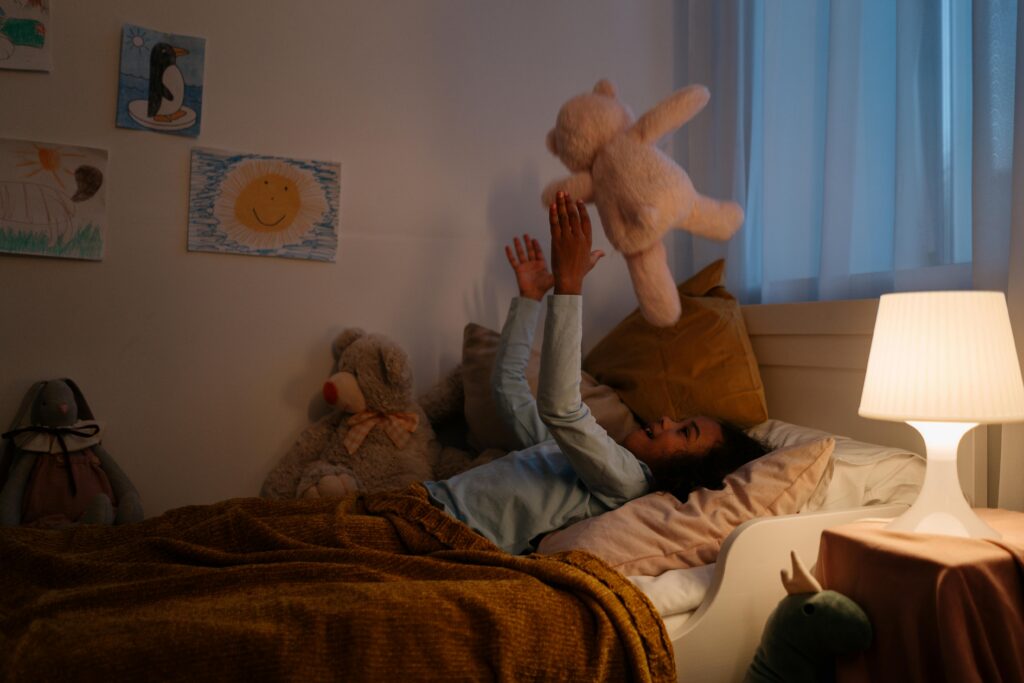
At Foster Wales, we think any house can become a home.
You certainly don’t need a mansion to foster a child or a dedicated playroom. (Fostering is not like the Annie movie!)
Most foster families have normal family homes; from mid-terrace, semi-detached or two-up, two-downs. Children are likely to feel more comfortable in a family home that feels familiar, in their community.
However, there are some foster care bedroom requirements in the UK that all carers must meet. These requirements are designed to help support a foster child and make them feel safe, settled and at home.
Read on as we debunk the myths and answer frequently asked questions about foster care bedroom requirements, including bedroom sharing and general accommodation rules.
can a foster child share a room with my child?
In short, no, they cannot.
One of the most important foster care bedroom requirements in the UK is that a carer must have a spare, suitable bedroom to be approved. This is so that foster children have a safe space, to meet their needs for privacy, security and have somewhere to call their own.
These foster care bedroom requirements exist to protect children and give them stability.
A bedroom can provide:
• A sanctuary and boundaries for a vulnerable child where they feel safe and secure.
• A quiet and private space where a child can have some time to themselves when they need it.
• A sense of ownership and the ability to personalise their living space and express their tastes.
• A feeling of stability and routine following an early life of upheaval.
what if I am fostering siblings?
If you are fostering same-sex siblings, or brothers and sisters under the age of eight it may be possible for them to share a bedroom.
Same-sex siblings sharing a bedroom in a foster home is at each local authority’s discretion and the individual childrens’ circumstances. For example, if the children have always shared a room, it may be distressing to separate them. Each situation will be carefully considered for what’s best for the children and risks involved.
The fostering regulations on bedroom sharing advise that the room should be large enough to comfortably accommodate both children and still provide them with their own personal space and privacy.
In addition, local authorities typically only allow brothers and sisters to share a bedroom up to pre-puberty.
what if they are a baby?
Babies under six months of age could sleep in a cot in a foster carer’s bedroom. But a spare bedroom is still usually required. Why? Because the planning and legal process for a child to return to family or move to adoption may not be complete by the time the child is one year old.
Also, most local authorities prefer foster carers to have a wider preference age range of children, for example 0-5, rather than just babies.

do I have to own my home to foster?
It doesn’t matter if you rent or own your home, as long as you can provide a safe and steady home for a child. Wherever you call home, we’ll work to support everyone who lives there.
But if you do rent, we’d advise that you mention to your landlord about fostering.
do I need to redecorate for every new child?
Please don’t panic about DIY. You don’t need to redecorate ahead of every new child arriving.
Generally, we would advise keeping a room neutral and simple, but not stark. That way, each foster child can put their own personality on the space.
However, you may choose to add some special touches to the room to make it feel more homely.
If you’d like to do this, think about the child’s age – a teenager and toddler will likely have very different requirements – and interests. Some foster carers have a supply of bedding for a child to choose from when they first arrive, and then plan a fun shopping trip for them to make their room, theirs.
Some ideas could include:
• Fresh bedding or decorative cushions
• Photo frames
• A notice or chalkboard
• A lamp or night light
• Stationery
• A cuddly toy
• A welcome basket of toiletries

does a bedroom need to be a certain size?
If your home isn’t the largest, please don’t worry. There is no legal requirement for a foster care bedroom to be a certain size.
A bedroom should focus on function and comfort.
For example, it must be big enough to accommodate essential furniture, such as a bed, and storage for clothes (a wardrobe or chest of drawers) and it must have a window.
To give an idea of bedroom size, take a look at online bed size guides.
will a box room, sofa-bed, conservatory, or loft room do?
A box room might be just fine for a child under 12. But, as they grow into strapping teenagers, they may need more space and a desk for homework or to study for exams. Think about the age of the child you might be fostering, and for how long.
A conservatory or a sofa-bed in a communal area is not a suitable bedroom for a child, as it doesn’t offer privacy and their own space, even with a curtain pulled across.
A loft conversion may be suitable depending on the age of the child. We’d usually recommend for young children to be on the same floor of a house as the foster carer’s bedroom, and there must be a safe exit in case of a fire.
we’re a little messy, is that ok?
We don’t expect a foster home to be spotless.
However, it will help a child feel welcomed if they enter a warm and tidy space. A home must also have a good standard of cleanliness and hygiene throughout the property. It may be advisable to declutter before starting the process.
I have a spare room – how can I foster?
If you’re keen to learn more about fostering, please take a look at our guide to who can foster and explore the resources available on this site. In Wales, no two children are the same and neither is a foster parent. So, we celebrate diversity and believe almost everyone can make a difference.
If you’re ready to take that next step, reach out to your local foster team and they can provide you with information specific to your local area in Wales. We’ll be by your side every step of the way.

